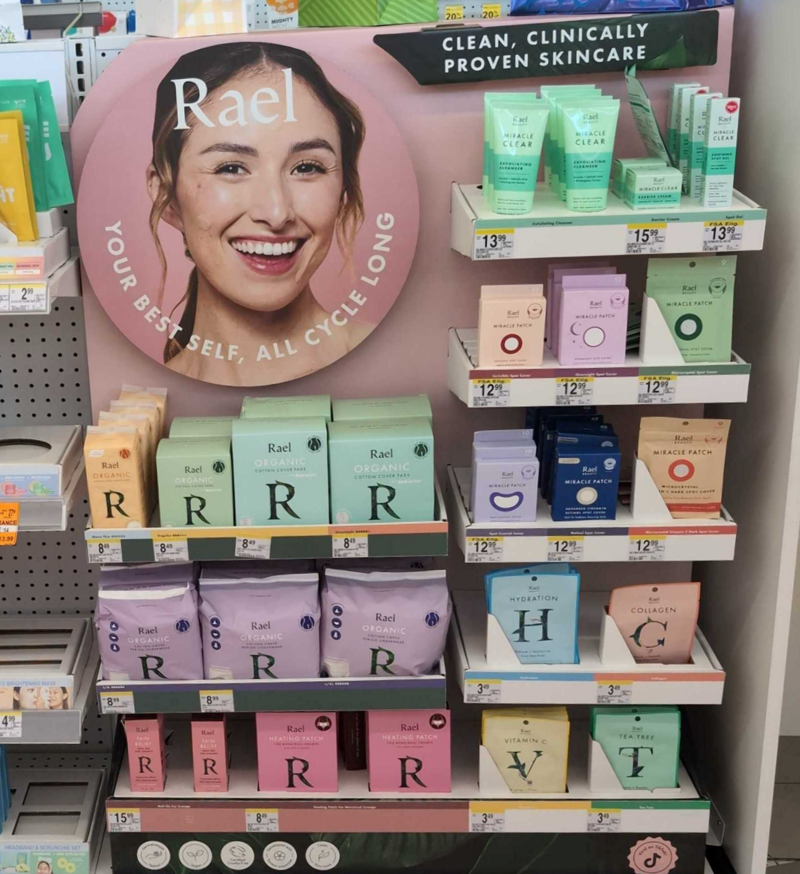K-Brands Outperform Overseas: Nationwide Entry in the US, Open-Run in Japan
- Input
- 2025-11-10 18:19:32
- Updated
- 2025-11-10 18:19:32

[Financial News] K-beauty and fashion brands, which have rapidly grown online, are now pursuing offline expansion strategies in major global markets. Leveraging brand awareness built on digital platforms, they are securing tangible offline touchpoints by expanding local distribution channels and operating flagship stores.
According to the retail industry on the 10th, emerging K-beauty and fashion brands are accelerating the expansion of their offline distribution channels in key global markets, moving beyond their online-centric approach. In major hubs such as the US, Japan, and Europe, these new brands are actively responding to the trend of experience-driven consumption by entering large retail channels and opening flagship stores.
Rael, which started as the top organic sanitary pad brand on Amazon in the US, is expanding its offline sales by entering over 20,000 stores of major local distributors such as Walmart, Walgreens, and Ulta Beauty. This is an unusual case for a brand that grew primarily online to make such a large-scale entry into major US retailers. Rael has also expanded its product lineup beyond sanitary pads to include skincare and health supplements, and is strengthening its in-store brand experience by exclusively operating a 'Wellness Zone' in Ulta Beauty and Walgreens, where all three categories are displayed together.
K-beauty brand TIRTIR has officially entered 400 Ulta Beauty stores, the largest beauty retail chain in the US, securing the largest exclusive display among K-makeup brands. Ulta Beauty, with about 1,400 stores nationwide, is considered a core offline platform that directly connects global brands with consumers, positioned between prestige and drugstore beauty channels. TIRTIR has placed its key makeup lines, such as the 'Mask Fit Red Cushion,' concealers, and tints, at the forefront to target local offline demand, and has enhanced its localization strategy by offering a color lineup of 40 shades tailored to various skin tones. In August, TIRTIR expanded its offline network across North America by entering Ulta Beauty in Mexico, further solidifying its brand expansion strategy based on direct consumer experience rather than simple exports.
APR, the top beauty company by market capitalization, is also maintaining its growth momentum by expanding both online and offline in major markets like Japan and the US. In Japan, as of the second quarter, the offline sales ratio exceeded 20%, indicating that the omnichannel structure combining online and offline is taking hold. In the US, APR is diversifying its distribution channels following its entry into Ulta Beauty. It is cited as a leading example of an online-centric K-brand expanding its presence through experiential offline retail.
Online-based fashion companies are also expanding offline. In April, MUSINSA opened the 'Matin Kim Shibuya Store' in Tokyo's Shibuya district, which achieved cumulative sales of 320 million won and attracted 4,000 visitors within just four days, sparking an open-run phenomenon. Building on this momentum, MUSINSA aims to open its 15th store in Japan and is accelerating its 'space-centric distribution' model, which transforms brand fandom into offline experiences.
LF's casual brand Dunst is realizing the potential of K-Fashion in the North American market, which has traditionally been difficult to enter. In the past, the US market was challenging for domestic fashion companies due to price competition and complex distribution structures. However, growing interest in K-Fashion is now creating more opportunities. Dunst has expanded its North American distribution by entering premium department store select shops such as Bergdorf Goodman and Printemps New York. Strengthening its global wholesale business, Dunst achieved a 70% year-over-year growth in North American sales from July to August this year.
An industry insider noted, "K-brands are strengthening their offline strategies by collaborating with local distributors and expanding experiential spaces to overcome the limitations of online-focused growth. Brands that build trust through experience, rather than just focusing on sales, will secure long-term competitiveness in the global market."
clean@fnnews.com Lee Jeong-hwa Reporter